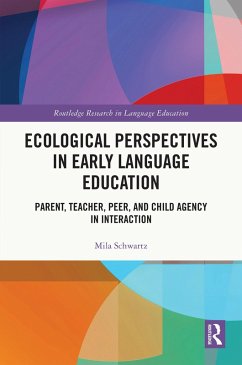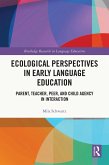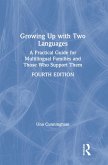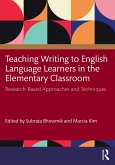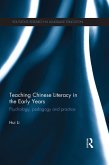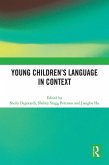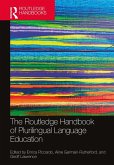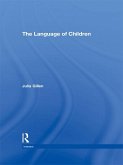Drawing on rich empirical research evidence, the book explores teachers' and family strategies and practices aimed at enhancing children's interest in home language maintenance and enrichment as well as in the novel language learning. It defines early language education as the education of children up to the age of 6 and considers international evidence of children's language from diverse sociolinguistic backgrounds and indigenous, endangered, heritage, regional, minority, majority, and marginalized languages, as well as foreign and second languages in education at home and out-of-home settings. It claims that only through collaboration between teachers, families, peers, and close environment, can the child be engaged in early language learning and fully experience his or her potential to act as agent in a novel language learning.
The book will be of great interest to researchers, academics, and postgraduate students in the fields of language education, multilingualism, applied linguistics, and early childhood education. Practitioners in these fields may also find the volume a valuable resource.
Dieser Download kann aus rechtlichen Gründen nur mit Rechnungsadresse in A, B, BG, CY, CZ, D, DK, EW, E, FIN, F, GR, HR, H, IRL, I, LT, L, LR, M, NL, PL, P, R, S, SLO, SK ausgeliefert werden.
- Dr Susana Eisenchlas, Senior Lecturer in Linguistics/Applied Linguistics, Griffith University, Australia
"Ecological Perspectives in Early Language Education" offers groundbreaking insights that redefine our approach to language education for young children. Through a comprehensive journey spanning ecological theoretical frameworks to practical applications, this book delves into the role of parents, teachers, peers, and the learning environment to understand the pivotal agency of children in language interactions. Moving beyond conventional paradigms, this volume explores the complex relationship between context, agency, and language development. Its commitment to cultivating language-supportive environments and empowering actors to create optimal conditions for young language learners is a hallmark of the book.
This book isn't just an exploration; it's a manifesto for change, challenging existing paradigms and inviting a holistic reevaluation of how we nurture language development in multilingual homes, preschools, or communities.
The book is strongly recommended for anyone committed to redefining the landscape of early language education and empowering young minds to grow and thrive in a linguistically diverse world."
- Dr. Beatriz Cortina Pérez, Assoc. Professor, Dept. Languages and Literature Education Department, Universidad de Granada / University of Granada, Spain
"This timely, informative and masterful volume captures the wealth of the Author's expert knowledge of early language education in multilingual settings. It provides a comprehensive overview of how agency is realised in contexts where divergent actors are involved. It is a must-read for researchers, students as well as practitioners in the field of applied sociolinguistics."
- Piotr Romanowski, University of Warsaw, Poland
"Mila Schwartz' book, Ecological Perspectives in Early Language Education is a significant contribution to the field of early language education and the interaction and collaboration between schools and multilingual families.
Professor Schwartz' innovative ecological approach towards multilingual children and the focus on child agency contributes to a growing field of research on early language education and provides practical guidance for teachers and other practitioners working in multilingual educational contexts. The book is an outstanding contribution to these areas."
- Hanna Ragnarsdóttir, Professor, University of Iceland

